Reasons for Low Vitamin D Levels – Causes & Risk Factors
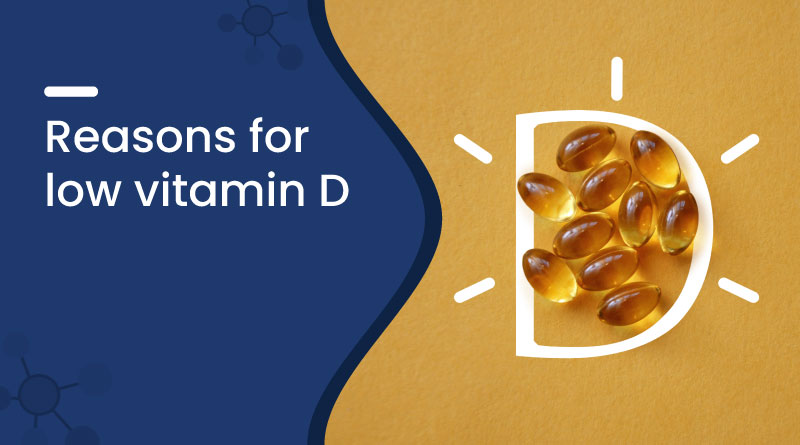

Reasons for Low Vitamin D
Vitamin D deficiency is becoming increasingly common, especially in urban areas. Vitamin D is essential for bone health, immune function, and overall well-being. Yet, many people suffer from low levels without even realizing it. In this blog, we’ll explore the key reasons for low Vitamin D and how you can manage it effectively.
What causes low Vitamin D in the body?
There are several possible causes behind low Vitamin D levels. Let’s understand the most common ones:
- Lack of sunlight exposure: When sunlight is exposed to the skin, it helps the body create its own supply of vitamin D. Limited outdoor time, sunscreen use, or living in polluted cities can block this process.
- Poor dietary intake: If your diet lacks foods rich in Vitamin D—like fatty fish, egg yolks, or fortified foods—your levels may drop over time.
- Darker skin tone: People with more melanin (darker skin) naturally produce less Vitamin D from sunlight.
- Obesity: Vitamin D is kept in the fat cells of the body, which makes it insufficient in the bloodstream.
- Aging: Older adults have thinner skin, which reduces the body’s ability to synthesize Vitamin D.
Is low Vitamin D linked to certain health conditions?
Yes, some medical conditions affect absorption:
- Celiac disease and Crohn’s disease interfere with nutrient absorption.
- Kidney or liver disorders can impair Vitamin D metabolism.
- Gastric bypass surgery can also reduce absorption.
List of Vitamin D Supplements in India
| Product | Key Features |
|---|---|
| Vitamin D3 (cholecalciferol) Drops | Oral drops that effectively cure vitamin D deficiency among children |
| Multiprex Syrup | A multivitamin syrup that helps to fill vitamin deficiencies in the body |
| Zinseng Forte | Contains vitamin D3, enhances general health, and immunity |
| Updee Vitamin D3 Sachet | Treats vitamin D3 deficiency |
Can limited sunlight cause low Vitamin D?
Yes, this is one of the primary causes. If you’re spending most of your day indoors, your skin doesn’t get enough UVB rays needed for Vitamin D synthesis. Cloudy weather, high-rise buildings, and clothing that covers most of your skin can also block sunlight.
Does a poor diet lead to Vitamin D deficiency?
Definitely. Vitamin D is naturally present in just a few foods. Without consuming items like salmon, tuna, mushrooms, or fortified milk, your daily requirement may not be met. Vegetarians and vegans are especially at risk.
Can medications lower Vitamin D levels?
Certain medications can reduce Vitamin D levels over time. These include:
- Steroids (like prednisone)
- Weight-loss drugs (like orlistat)
- Anti-seizure medications
These interfere with either the absorption or metabolism of Vitamin D in the body.
Can Vitamin D levels drop even if I’m taking supplements?
Yes, if the dose is too low or absorption is poor. People often take incorrect doses or don’t follow medical advice. Also, some health issues may prevent proper absorption of supplements.
Are indoor lifestyles causing a rise in Vitamin D deficiency?
Definitely. With more people working from home, using digital devices, and avoiding sun exposure, indoor lifestyles have become a major factor. Urban populations and children, especially, are at higher risk.
Can low Vitamin D go unnoticed for a long time?
Yes, deficiency symptoms are often subtle and slow to appear. You might feel tired, have bone pain, frequent infections, or mood swings. Many people don’t connect these signs to Vitamin D levels until a blood test confirms it.
Conclusion
Low Vitamin D is a silent problem with long-term health impacts. Factors like limited sun exposure, poor diet, obesity, and medical conditions contribute to this deficiency. Identifying the causes of low Vitamin D is the initial step for its correction. If you think you might be deficient, get tested and consult a healthcare provider for proper guidance.
Frequently Asked Questions (FAQs)
Q. What are the early symptoms of Vitamin D deficiency?
A. Fatigue, low immunity, muscle weakness, and bone pain are common early signs.
Q. How much sunlight do I need to make enough Vitamin D?
A. Getting sunlight for around 15 to 30 minutes, several times a week, is typically sufficient for most people to maintain healthy vitamin D levels.
Q. Can I get Vitamin D from food alone?
A. It’s difficult to meet your daily requirements through food alone. Sunlight and supplements are often needed.
Q. Who is most prone to Vitamin D deficiency?
A. Elderly individuals, people with darker skin, indoor workers, and those with certain medical conditions.
Calcium Carbonate 625 mg (eq. to Elemental Calcium 250 mg) + Cholecalciferol (Vitamin D3) 125 IU
200 ml in 1 bottle
Calcium Carbonate (1250 mg equivalent to Elemental Calcium 500 mg) + Vitamin D3 (250 I.U)
15 Tablets in 1 Strip
Cholecalciferol 60000 I.U. per sachet
1gm in 1 sachet
Protein Hydrolysate 10% (16.67 gm) + Dibasic Calcium Phosphate (750 mg) + Phosphorous (580 mg) + Pyridoxine Hydrochloride (1.67 mg) + Cyanocobalamin (3.33 mcg) + Vitamin D3 (333.33 IU) + Niacinamide (50 mg) + Calcium Pantothenate (16.67 mg) + Folic Acid (1 mg) + Zinc Sulphate Monohydrate Eq. to Elemental Zinc (1.67 mg) + Ferric Ammonium Citrate Eq. to Elemental Iron (25 mg) + Manganese Sulphate (5 mg) + Magnesium Oxide (13.33 mg) + Anhydrous Copper Sulphate (8.33 mg) + Chromium Chloride Eq. to Elemental Chromium (83.33 mcg) + Selenium Dioxide Monohydrate Eq. to Elemental Selenium (66.67 mcg) + Potassium Chloride (16.67 mg) + Sodium Chloride (110 mg) + Potassium Iodide Eq. to Elemental Iodine (333.33 mcg) + Excipients (q.s.)
200gm powder in jar
Protein Hydrolysate 10% (16.67 gm) + Dibasic Calcium Phosphate (750 mg) + Phosphorous (580 mg) + Pyridoxine Hydrochloride (1.67 mg) + Cyanocobalamin (3.33 mcg) + Vitamin D3 (333.33 IU) + Niacinamide (50 mg) + Calcium Pantothenate (16.67 mg) + Folic Acid (1 mg) + Zinc Sulphate Monohydrate (1.67 mg) + Ferric Ammonium Citrate (25 mg) + Manganese Sulphate (5 mg) + Magnesium Oxide (13.33 mg) + Anhydrous Copper Sulphate (8.33 mg) + Chromium Chloride (83.33 mcg) + Selenium Dioxide Monohydrate (66.67 mcg) + Potassium Chloride (16.67 mg) + Sodium Chloride (110 mg) + Potassium Iodide (333.33 mcg) + Excipients (q.s.)
200gm powder in jar
Cholecalciferol (60000IU)
4 Capsules in 1 Strip
Lycopene (2000 mcg) + Beta Carotene (6 mg) + Vitamin C (50 mg) + Vitamin A (1200 IU) + Vitamin E (1 IU) + Vitamin D3 (50 IU) + Vitamin B1 (0.5 mg) + Vitamin B2 (0.5 mg) + Vitamin B6 (0.5 mg) + Vitamin B12 (0.00025 mg) + Calcium Pantothenate (5 mg) + Niacinamide (5 mg) + Calcium (75 mg) + Phosphorus (58 mg) + Folic Acid (0.025 mg) + Copper (0.045 mg) + Iodine (0.075 mg) + Potassium (2 mg) + Magnesium (3 mg) + Manganese (0.5 mg) + Molybdenum (0.1 mg)
15 Capsules in 1 strip
Ginseng Extract Powder (42.5 mg) + Vitamin A (750 mcg) + Vitamin B1 (1 mg) + Vitamin B2 (1.5 mg) + Vitamin B6 (1 mg) + Vitamin B12 (1 mcg) + Vitamin C (50 mg) + Vitamin D3 (5 mcg) + Vitamin E (5 mg) + Folic Acid (150 mcg) + Vitamin B3 (10 mg) + Vitamin B5 (5 mg) + Calcium (75 mg) + Phosphorus (58 mg) + Copper (0.5 mg) + Iodine (0.1 mg) + Ferrous Fumarate (30 mg) + Magnesium (3 mg) + Manganese (0.5 mg) + Potassium (2 mg) + Zinc (10 mg)
10 Capsules in 1 strip
Recent Blogs
Disclaimer : Zeelab Pharmacy provides health information for knowledge only. Do not self-medicate. Always consult a qualified doctor before starting, stopping, or changing any medicine or treatment.

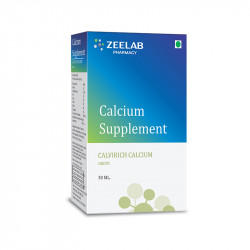
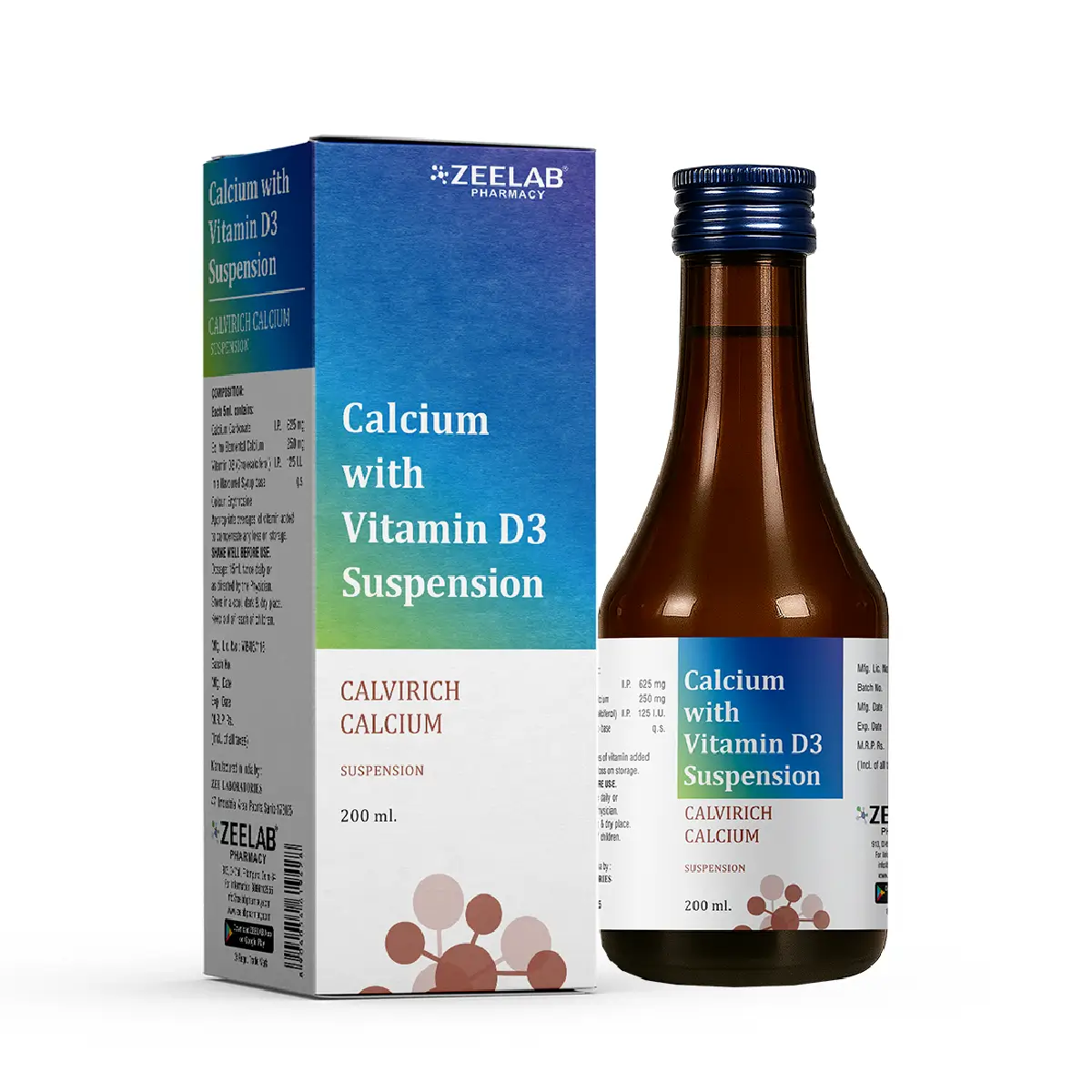
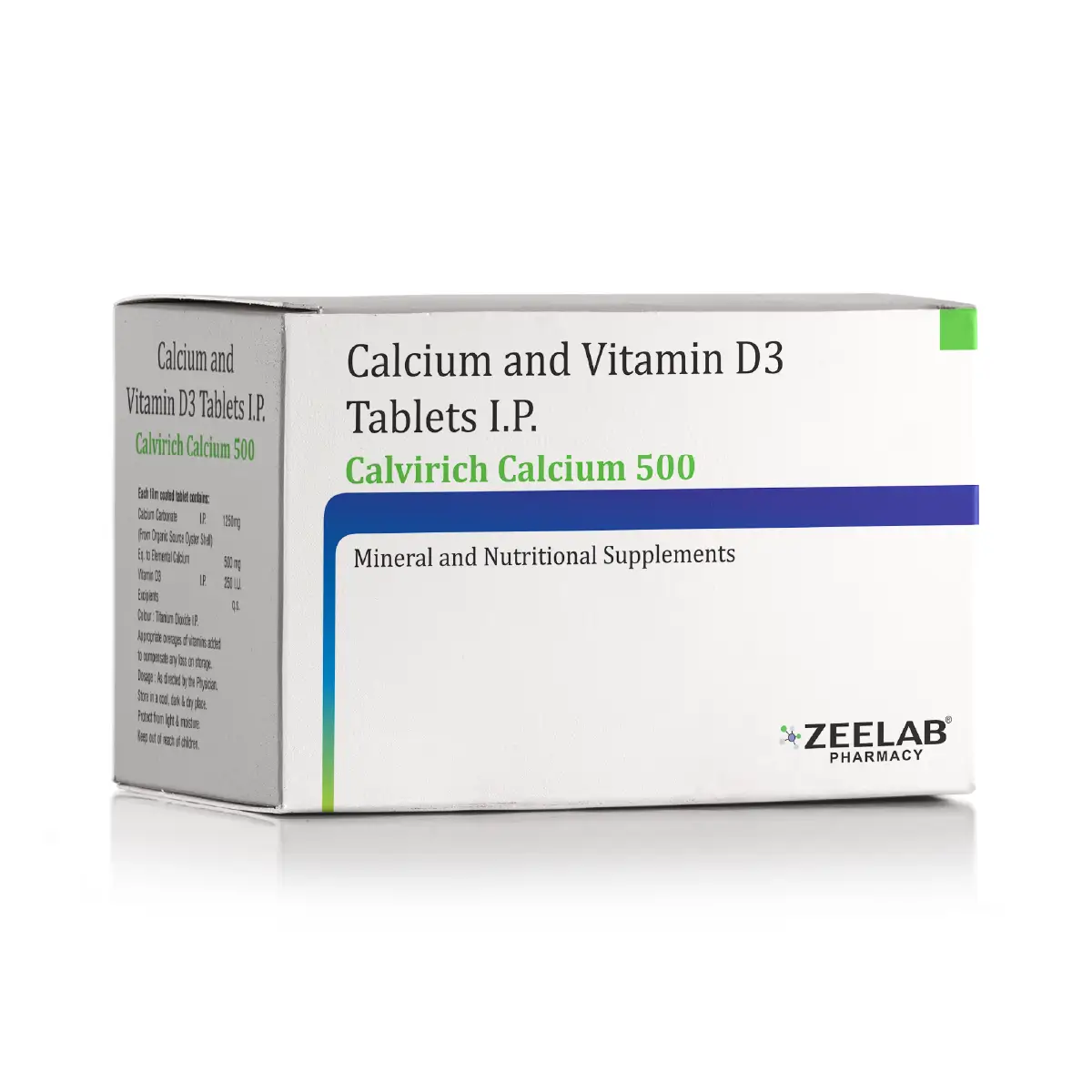
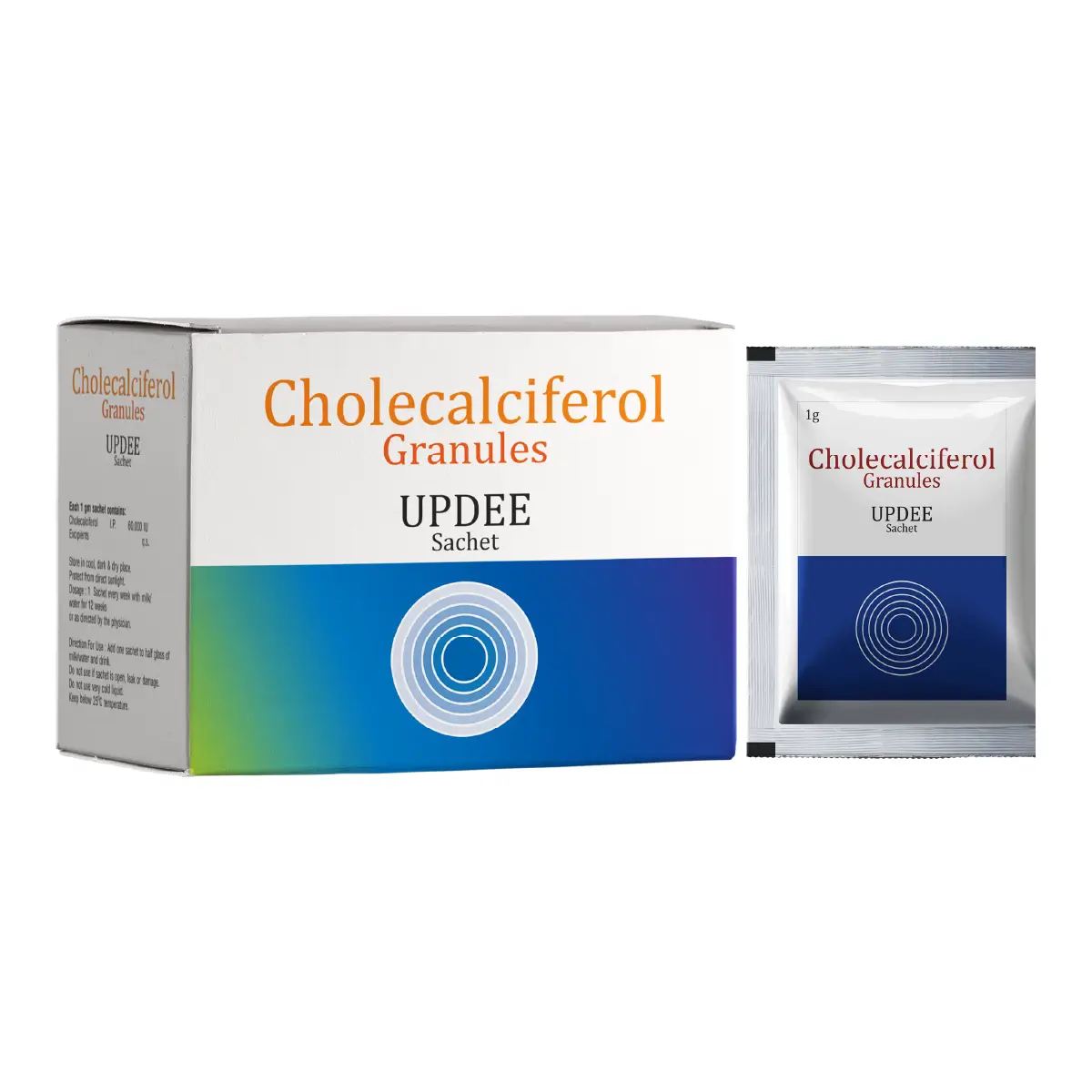




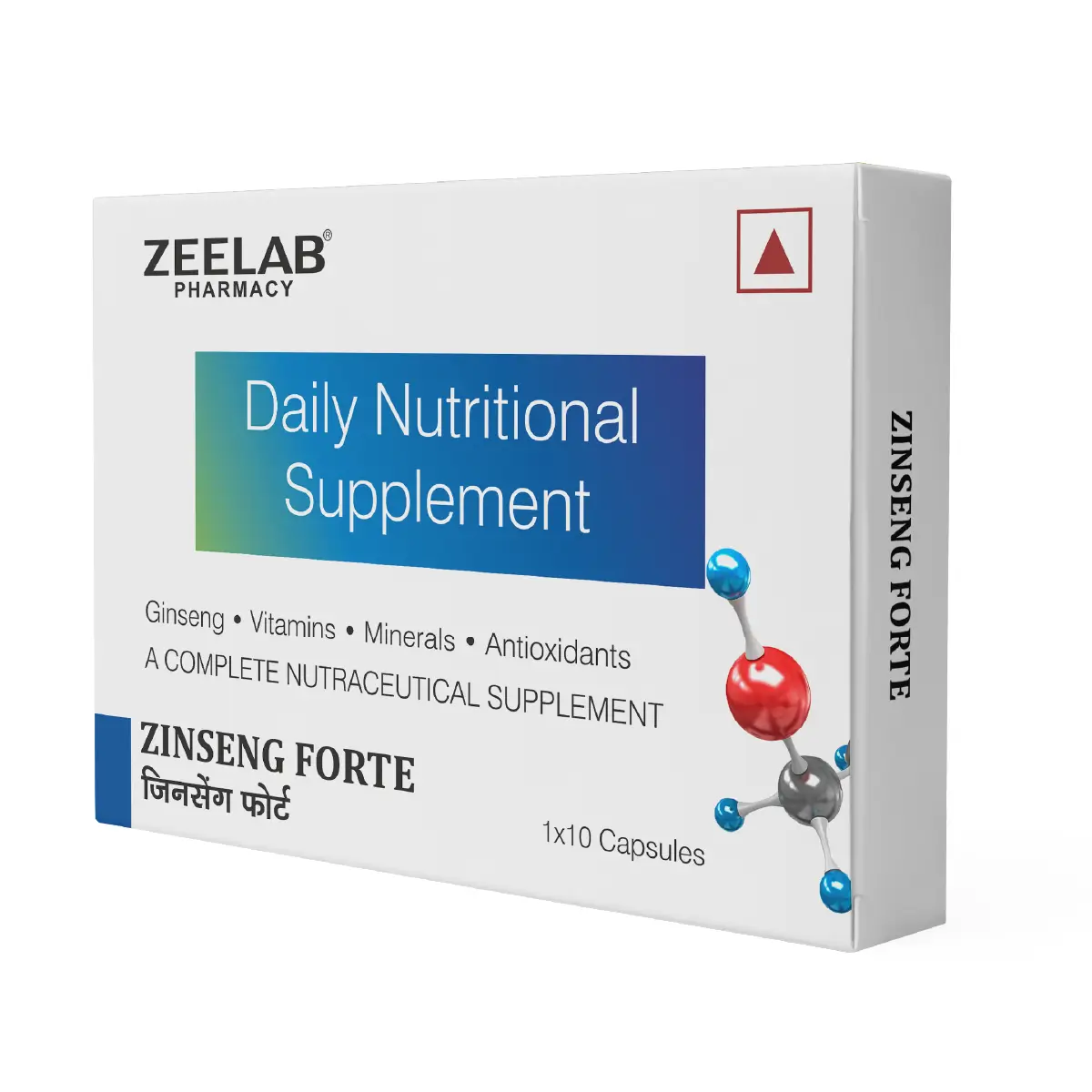















 Added!
Added!